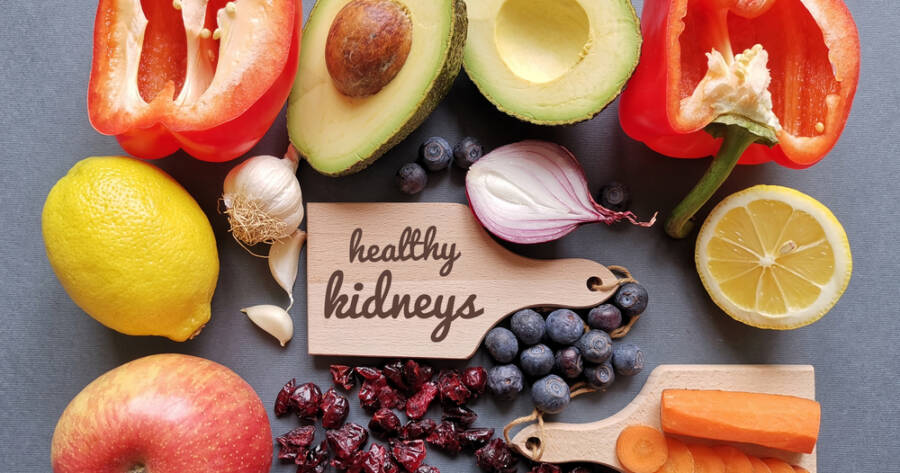Maintaining kidney health is essential for overall well-being, as these organs play a crucial role in filtering waste and regulating blood pressure. A balanced diet, rich in certain fruits, vegetables, and proteins while controlling sodium, potassium, and phosphorus intake, is key to long-term, healthy functioning. Individuals can enhance kidney function and prevent related issues through informed dietary choices.
Understanding the Importance of Kidney Health
Kidney health is crucial for maintaining overall well-being, as kidneys play a vital role in filtering waste from the blood, regulating fluid balance, and maintaining blood pressure. Ensuring good kidney health requires a focus on diet and lifestyle, especially for those with kidney disease or at risk of developing it.
Certain foods and nutrients can significantly impact kidney function, either positively or negatively, based on their composition and properties. Understanding these dietary components is essential in effectively managing and supporting kidney health.
Beneficial Foods for Supporting Kidney Health
A well-planned diet is integral to kidney health, especially for individuals with kidney concerns. Many fruits and vegetables are excellent choices, including berries and apples. These fruits are low in potassium and high in antioxidants, making them ideal for kidney health by providing anti-inflammatory and heart-healthy benefits. The inclusion of blueberries, strawberries, raspberries, and apples in the diet can contribute positively to kidney function and overall health. Incorporating more exotic options such as pineapple can offer fiber and vitamin C without the potassium overload of other tropical fruits like bananas.
Vegetables like cauliflower and bell peppers are particularly beneficial for kidney support. They are rich in vitamins and low in potassium, providing necessary nutrients without burdening the kidneys with high mineral content as they develop. Additionally, arugula serves as a low-potassium, nutrient-rich leafy green, while cabbage aids in digestion, both contributing to kidney function without adverse mineral effects.
Protein Choices and Kidney-Friendly Alternatives
Protein source selection is critical for maintaining kidney health. Lean proteins, such as egg whites and skinless chicken, provide essential amino acids without excessive phosphorus. For those preferring plant-based options, shiitake mushrooms propose a protein-rich, low-potassium alternative, ideal for kidney support. Practices like using olive oil instead of high-sodium seasonings can beneficially contribute to one’s diet by providing anti-inflammatory benefits and antioxidants important for kidney health.
Incorporating fatty fish like salmon, tuna, and sea bass, which contain omega-3 fatty acids known for reducing inflammation, supports not only kidney health but also cardiovascular and neurological health. The inclusion of such beneficial nutrients is essential for a comprehensive approach to kidney well-being.
Additional Considerations for a Kidney-Friendly Diet
Sodium, potassium, and phosphorus control is a cornerstone of the renal diet. This diet avoids high-potassium fruits, such as bananas and avocados, favoring alternatives like grapes, peaches, and pears, which deliver health benefits without high mineral content. Cauliflower and red bell peppers offer essential nutrients, while avoiding mineral excess common in potatoes and winter squash.
Managing kidney health involves strategies like choosing kidney-friendly seasonings. Garlic provides a flavorful, sodium-free alternative rich in vitamins C and B6. Onions add similar benefits with combined antioxidants, vitamins, and micronutrients essential for those focused on kidney well-being.
Why You Should Learn More About Kidney Health Today
Kidney health plays an essential role in maintaining overall bodily functions, from detoxification processes to regulating blood pressure. A kidney-friendly diet should be a priority for anyone looking to prevent kidney-related issues or manage existing conditions effectively. This incorporates a balanced intake of fruits, vegetables, and proteins while being mindful of sodium, potassium, and phosphorus intake.
By staying informed and consulting healthcare professionals, individuals ensure that they are making the best dietary choices to support their kidney health. With the right approach, enhancing kidney health is both achievable and beneficial for long-term wellness.
Sources
20 Healthful Foods for Fighting Kidney Disease

